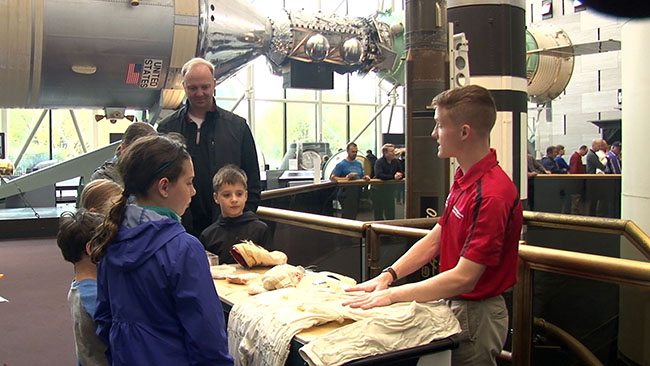Arizona posted the nation’s biggest gains in fourth-grade standardized science test scores last year but still lagged behind the national average, with the fifth-lowest scores overall, according to national test results released Thursday.
The National Assessment of Educational Progress also said that Arizona managed to close the achievement gap between white and Hispanic students, but not black or Native American youth.
State educators welcomed the gains while acknowledging that there is still work to be done.
“It’s good news and not so good news,” said Joe O’Reilly, executive director of student achievement support for Mesa Public Schools. “We want a higher level of our students to be proficient, but we are moving to proficiency faster than other states. It appears we’re getting better and I credit the teachers with that.”
Arizona fourth-graders posted an 11-point increase in their standardized science test scores between 2009 to 2015, a time when scores nationally rose just four points. But the state’s gains gave it score of 149 – less than the national average of 153 last year and well below the score of 167 that is considered “proficient.”
The results were released Thursday at the Smithsonian National Air and Space Museum. Educators, against a backdrop of rocket displays, took the opportunity to tout the importance of hands-on learning to help students grasp science.
“Students find science interesting, but don’t like their classes as much. They lack exploration opportunities,” said Linda Rosen, a member of the National Assessment Governing Board, which oversees the tests.

She was part of a panel that hailed the improved scores, but said they could rise even higher if students had more hands-on science learning.
Arizona educators also hailed their share of the gains Thursday, crediting both students and teachers.
“While our state still has room to grow, these scores show that we are on the right track,” said Arizona Superintendent of Public Instruction Diane Douglas. “I am also pleased that this progress has been made without sweeping changes to our science standards, which we now have the opportunity to build upon and improve.”
The report also showed Arizona eighth-grade students posting a six point increase over the period – but again being mired near the bottom of states, finishing sixth-lowest in science scores for that grade.
U.S. Secretary of Education John King said in a press call Wednesday that the report shows critical thinking skills are improving in students all over the country.
“We’re seeing racial achievement gaps in the sciences narrowing in the fourth and eighth grades … and the gender gaps also are closing,” King said. “All of this means that more students are developing skills like thinking critically, making sense of information and evaluating evidence.”
Eileen Sigmund, president of the Arizona Charter Schools Association, said science education has real-world impact.
“The key to student performance is going to be the teachers and the leaders,” said Sigmund, who said the state’s charter schools outperformed public schools overall in the state and finished in eighth place nationally last year.
“The way Arizona is teaching science is showing strong growth,” Sigmund said. “As far as the critical thinking, that is the way everything is moving, toward critical thinking. Strong science is key to a strong country and a strong economy.”
Despite the need for continued improvement, state officials welcomed the unusual first-place finish for Arizona.
“Arizona was No. 1 in the nation, when we are so often at the bottom of the list,” said Charles Tack, an Arizona Department of Education spokesman. “We so often hear negative things. We know there are great things happening in Arizona, great teachers all over the state, great students all over the state.”
Science by the numbers
Arizona students posted the biggest increase in science tests scores from 2009 to 2015, but the state still fell below the national average on the standardized tests, where 167 is considered proficient. The state and national scores were:
4TH GRADE
– Arizona: 138 in 2009; 149 in 2015
– National: 149 in 2009; 153 in 2015
8TH GRADE
– Arizona: 141 in 2009; 148 in 2015
– National: 151 in 2009; 153 in 2015
By Aida Chavez, Cronkite News
-Cronkite News reporter Claire Caulfield contributed to this report.




